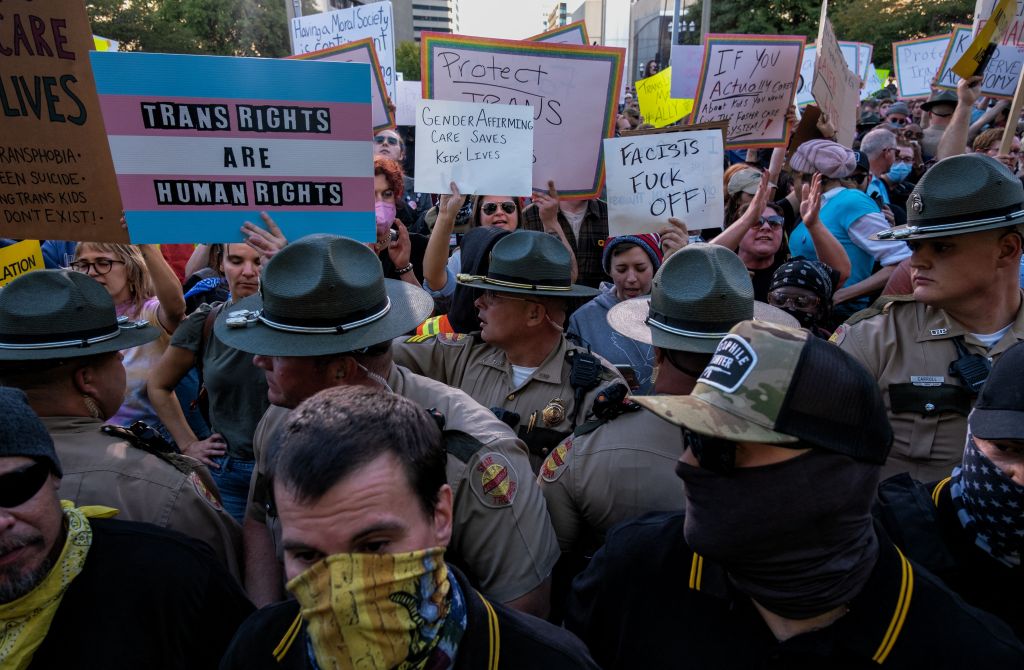US Supreme Court set to decide whether cruel bans on youth trans health care are constitutional

The US supreme court will weigh in on a Tennessee healthcare ban (Canva)
The Supreme Court is set to rule on a milestone transgender rights case that will decide the legality of a law that prevents trans youngsters receiving gender-affirming medical care.
The bill denies all under-18s in Tennessee the right to trans healthcare, including puberty blockers, and leaves doctors who provide trans medical care to minors at risk of legal action from parents, guardians and the state attorney general.
The nine justices took up an appeal by president Joe Biden’s administration against a lower court’s decision that upheld the ban and after plaintiffs asked the court to review the legislation.
The challengers – including three Tennessee trans teens, their parents and a doctor – argue that the ban violates transgender rights by violating the US constitutional guarantee of equal protection under the law, by discriminating on the basis of sex, and also that it undermines parents’ right to make decisions regarding medical care of their children.
“The future of countless transgender youth in this and future generations rests on this Court adhering to the facts, the Constitution, and its own modern precedent,” Chase Strangio, deputy director for transgender justice at the American Civil Liberty Union’s LGBTQ & HIV project, said in a statement.
The case will act as a wider litmus test, bringing much-needed clarity to whether the Constitution contains special protections for gender identity.
When the court was being petitioned, one of the teenagers, known only as LW, said: “I’m fighting this law because I know how important care is for tens of thousands of transgender youth like me. It scares me to think about losing the medication I need, and if this law continues, my family may have to leave Tennessee: the place I have lived and loved my entire life.
“With so many new laws like Tennessee’s, it is hard to imagine where we can even go. I want the justices to know transgender people are not going away and that we deserve the same rights as everyone else.”
The US justice department has also intervened to challenge the law.

Lawyer Henry Leventis previously claimed the bill “violates the constitutional rights of some of Tennessee’s most vulnerable citizens”, adding: “Left unchallenged, it would prohibit transgender children from receiving health care that medical providers and their parents have determined to be medically necessary.”
US assistant attorney general Kristen Clark, from the Civil Rights Division of the Department of Justice, said medical autonomy is “a right everyone should have” and extends to “transgender children, who are especially vulnerable to serious risks of depression, anxiety and suicide”.
Last year, solicitor general Elizabeth Prelogar, the Biden administration’s Supreme Court advocate, said the bill and those like it “inflict profound harms on transgender adolescents and their families by denying medical treatments that the affected adolescents, their parents and their doctors have all concluded are appropriate and necessary to treat a serious medical condition”.
The Supreme Court will hear this case during its next term, which begins in October. Six of the justices were appointed by Republican presidents, including three when Donald Trump was in the White House.
“This is a high-stakes moment for transgender youth and their families, and we’re glad that trans youth and their families will have their day in court to make the case that the bans are unconstitutional, interfere with private medical decisions, and severely harm families,” Allison Scott, director of impact and innovation at the Campaign for Southern Equality, told The Hill.
“Everyone who needs gender-affirming care should be able to access it affordably, and close to home, and our team will never stop working to make that happen.”
How did this story make you feel?

